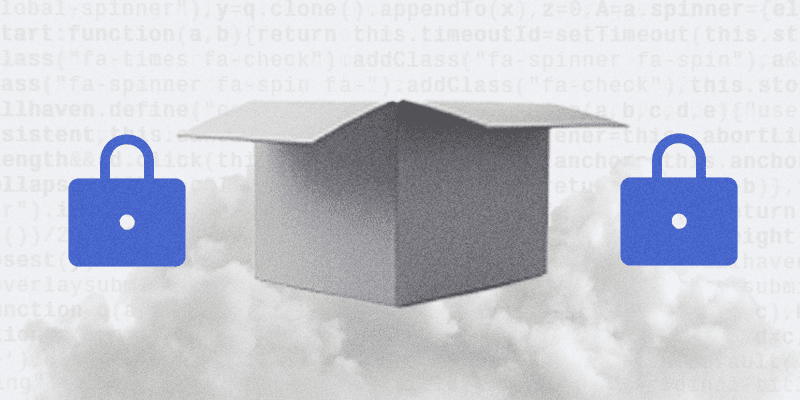Managed packages help Salesforce teams customize their environment, but special care needs to be taken to avoid introducing data security vulnerabilities.
Why It Matters: The way these managed packages are designed, implemented, and used determine whether they have a positive or negative impact on data security.
- It is your responsibility to secure your Salesforce environment the moment customizations are introduced.
- These customizations are a common source of data security vulnerabilities as users believe Salesforce protect them—but it doesn’t.
- The average cost of a data breach in 2023 is $4.45 million—an all-time high.

Here are 10 ways Salesforce managed packages impact data security:
1. Generic Permission Settings
The initial setup of managed packages should be your first consideration. This could relate to something as broad as populating an organization’s data within the application or as minute as the individual settings within it. Managed packages come predesigned to someone else’s standards. This boils down to the most elemental aspects of the application, including the profiles and permission settings.
Permission settings need to be reviewed to ensure they aren’t granting excessive privileges and align with the organization’s security policies.
Overexposed data increases the risk of a costly accidental deletion. This leads to functionality and even data security problems.
2. Inclusion of Third-Party Code

Managed packages are coded by developers outside your organization. This is part of the appeal of these applications—you get the functionality without needing to put in the time to build it yourself. However, this advantage can also be a liability without proper due diligence. The code that makes up a managed package has the capability to negatively interact with your data.
Take the time to review the code within a managed package and assess its data security implications.
Any vulnerabilities that exist in the coding structure of the managed package can then expose the data inside your Salesforce environment to risks.
3. API Connectivity
Managed packages can include components that utilize the Salesforce API to interact with and manipulate data, perform business logic, and integrate with external systems. The API provides a set of protocols and tools that developers use to build software applications that communicate and integrate with the Salesforce platform.
Organizations need to review and restrict API access to maintain control over how data is handled to prevent unauthorized data exposure.
A lack of control over how your data is managed leads to security and compliance vulnerabilities. Oversight is critical to maintaining necessary levels of control.
4. Data Encryption
Sensitive data such as financial information, medical records, or personally identifiable information need the highest levels of protection. Failing to do so leads to falling out of compliance with data security regulations and very harmful consequences for affected customers. And if a managed package deals with sensitive data, these elevated levels of security need to be addressed within the application.
Encryption tools must be in place to protect sensitive data, both within the application as well as anything that passes through it.
This type of information is a main target for cybercriminals. Rotative measures need to be put in place to ensure sensitive data isn’t compromised.

5. Need for Access Controls
This idea of extending data security considerations to managed packages doesn’t stop at protecting sensitive data with encryption. Even the most basic levels of protection need to be directed at these connected applications.
Proper access controls need to be configured for managed packages to prevent unauthorized access to system data.
Managed packages can introduce new custom objects, fields, and functionalities to your Salesforce instance. This creates an increased attack surface and more opportunities for bad actors to exploit a vulnerability. Controlling the access points is an essential first line of defense against hackers.
6. Modified Data Sharing Settings
Data sharing settings dictate the configuration and rules that determine how data records are shared among users and groups within Salesforce. These settings have a huge impact on data security by controlling who is able to access, view, edit, and delete specific records. The installation of a managed package could modify these settings.
Sharing settings need to be reviewed and adjusted to match the organization’s requirements for data visibility and security.
Continuous visibility into access and sharing settings provides the insight teams need to properly manage how their data is handled and secured.
7. Dependency Issues
Some managed packages may rely on external services or APIs. These types of contingencies and dependencies are inherent to the application and integral to how it operates. But this means the organizations that use these managed packages are connected to these third-party entities—and a security lapse in one could lead to an entry point into the other.
Assess the security practices of any existing dependencies for a managed package before sourcing it to prevent potential data security vulnerabilities.
Taking time for this in the initial phases of finding an application saves immense amounts of time and money later.

8. Ongoing Updates
Managed packages are not static applications. They are susceptible to periodic updates, patches, and changes. And while these updates should ideally fix an existing problem or extend a capability, these changes can occasionally impact the stability of the platform in which they have been integrated.
Pay attention to when a new update or patch is introduced for every managed package that has been implemented in your Salesforce environment.
Testing these applications in a sandbox environment before applying them to your production instance is a great way to verify an absence of vulnerabilities without putting your system data at risk.
9. Impacted Workflows
Unfamiliar workflows can lead to manual errors. Team members who aren’t comfortable with new workflows can make errors that impact functionality, productivity, and even data security. An abundance of these errors increases the chances of a negative outcome but some intentional processes can reduce the complexity for your team.
Adequate training on how managed packages impact the working environment ensures team members understand the security implications and best practices relating to the application’s features.
Rushing into new environments will only create unforced errors. Data security requires consistency and eliminating confusion makes this much more likely.
10. New Data Interactions

The customizations you introduce to your Salesforce environments through managed packages impacts the way you handle your data. These new interactions between various sets of data can lead to unintended consequences if they aren’t tracked and managed properly.
Auditing mechanisms need to be set up to track changes and access data that is either introduced to your system or modified by the managed package.
Clear trails of how data is handled will help ensure nothing is lost, but it will also help those in regulated industries provide essential documentation to prove compliance.
Next Step…
Salesforce managed packages don’t have to be confusing. The initial setup can impact data security and the value it provides to an organization. And this setup can be cumbersome.
Download the datasheet for AutoRABIT’s Record Migrator to learn more about how this unique functionality makes it much easier to integrate the power of applications from the Salesforce AppExchange.
